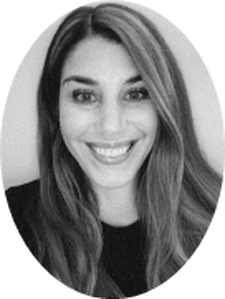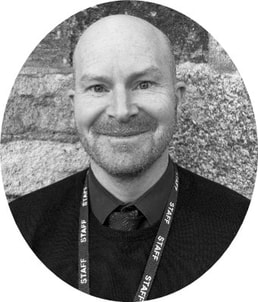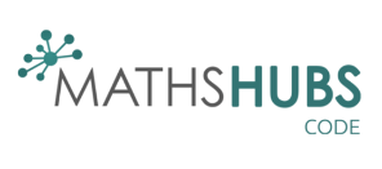|
As Mathematicians it adds up that Laura Clitheroe and David Hick provide double the benefits as joint CODE Maths Hub Leads. Both have been teaching for around 20 years and Laura recently took up the helm as the Hub Lead for three days last September, supported by David one day a week. Laura has been teaching for most of her career at Montpelier Primary School in Plymouth and has been Trust-wide Maths Lead for the Greenshaw Learning Trust, as well as supporting as Maths SLE. David is currently in his third year as Headteacher of Chacewater School, part of Truro Penwith Academy Trust, having started his career teaching at St Ives Junior School, before moving to Threemilestone School, where he was Assessment Lead, Maths Lead and Deputy Head, plus a short spell as Acting Head. David leads Maths for the Trust and has been leading the CODE Maths Hubs for about five years. Working together as CODE Maths Leads allows more capacity for Laura and David due to the evolving work. 1. What do you consider to be the main benefits for Maths CODE Hubs in working with SWIFT as your local Teaching School Hubs to date? Firstly, collaboration in working with system leaders, and sharing their knowledge and expertise; as well as access toother educational establishments, different voices and different people; which in turn gives access to other colleagues that we might not otherwise have access to within the SWIFT network. Secondly, access to other opportunities. For example, the facilitation of the National Professional Qualification in Leading Primary Maths (NPQLPM); which has been a very successful joint project with SWIFT. We have been able to signpost some of our Assistant Maths Leads to facilitate the NPQ through SWIFT, which is obviously great professional development for them and a great link with SWIFT. So, we are enjoying our mutually beneficial working together. But we are also able to have some say in the development of future teachers through the Teaching School Hubs which is important to us. 2. How has this benefitted you and your teams professionally and personally? Personally, for me (Laura), having recently started in the role, the support and contacts within SWIFT from expanded networks has been beneficial in enabling me to develop continually the reach and impact of the Maths Hubs across our region. Professionally (for Dave as he has been in the role for longer), it comes back to that professional growth and access and intelligence gathering which again, allows the Hubs to expand their reach. When you are working within the network of Teaching School Hubs, it is about feeding into that access, which in turn gives the people we are working with access to research-lead CPD, and we like to think this is what we are all about at CODE Maths Hubs. I think the way education is moving now we should be looking at education and research to support professional growth and start to implement this intent in order to see the impact. 3. What do you believe to be the most important role generally for Curriculum Hubs in supporting schools? I think the most important role for Curriculum Hubs is about developing teachers and educators who can deliver the very best outcomes for the children and students they are teaching. It is important to look at how we can take some of the educational research and distil it into best practice for teachers and in such a way that teachers, who might not have the time to benefit from the training opportunities as we might wish, can put it into practice; which again, is only going to be a good thing for children and students. We like to think of it as equitable access to high-quality professional development backed by research, and as Maths Hubs, we can help to provide that level of development from a variety of programmes, such as our Subject Knowledge courses for Teaching Assistants covering Maths lessons at primary, and for non-specialists in secondary. These are two of our most popular courses because we all know that there is a huge demand, not least because of the recruitment crisis and so many non-specialists are covering Maths lessons. Because the Maths Hubs provide fully funded and research-backed professional development opportunities, it is a win-win situation for schools and colleagues and our role as Maths Hubs is about recognising and responding to the current challenges in education. It would be counterintuitive to have a static view of education and with us both working within the profession, we are very much in contact and working alongside local leaders and benefit from this close-up insight into the educational landscape at primary, secondary and post-16 and we understand the challenges and how Maths Hubs can support better and continue to develop our support in a way that works. There are also parallels to other Curriculum Hubs and by understanding the national picture we can fit that into our understanding of the local context, which is important in serving our local communities. Obviously, our region is different contextually to London; but some of the national aims and objectives are going to be the same, and we need to think about how to marry together into the local context. 4. What one thing (if possible) would you change to enhance your support? Capacity, time and money! This relates back to what we were saying about the fact that it is no use having a static offer or a static view of how things should be as idealists, because we know that in reality this may not be possible/practicable. This is something that we are grappling with more and more despite the funding being there as schools understandably want teachers to be in classrooms. But we are keen to promote schools to see the bigger picture of professional development within their own school and as part of retaining teachers as it gives teachers something beyond their own school, and enables them to develop whilst retaining them in the profession. We believe in our strong and robust offer and the longevity of the programmes in schools from their sustained engagement and we know that this will have a positive impact. We are keen to help remove any barriers to facilitate what Laura called equitable access for all colleagues to ensure equitable balance that gives capacity to teachers so that they can be actively engaged in our Hub programmes. We understand this can be very challenging, particularly in some sectors where the funding does not make a difference because if you have not got a Teacher of Maths in your secondary school then the money does not make a difference. 5. What would you like to see more of in your future working partnership with SWIFT? Continued collaboration across the wider network as we have previously mentioned. Growing these links and working with SWIFT to continue to share our message about our Maths provision so that everyone understands what CODE Maths is about and our offer and how people can engage with us in a variety of different ways. We would also be keen to develop coordinated links across other Curriculum Hubs through SWIFT; which is important because there are parallels with the English Hubs and there is power in the ability to information and intelligence share. For example, we might be working with schools who potentially need some targeted support in Maths and where some wider teaching and learning support is needed, which we can fit into the remit of other Curriculum Hubs and the Teaching School Hubs can support and signpost to schools. It is back to effective system leadership in schools and Multi Academy Trusts and cross-school and Teaching School Hubs can help to magnify this working together that ultimately supports school improvement. More Information The CODE Maths Hub offers sustained and ongoing engagement with schools over the academic year to facilitate professional dialogue within continuing professional development. They support Network Collaborative Projects (NCPs) to develop a shared understanding and teaching for mastery; as well as Subject Knowledge of Teaching Mathematics courses. The CODE Maths Hub are currently recruiting for Mastering Number at Key Stage 1 for 2024 - 2025; as well as welcoming applications from teachers for their Early Years, Primary and Secondary Mastery Specialist cohorts for 2024 - 2025. You can read about Mastering Number at Key Stages 1 and 2 in the 2023 Coordinating Mathematical Success: the Mathematics Subject Report. Keep in Contact
The Hub will be recruiting after Easter for 2024 - 2025 and are always keen for schools to start their Teaching for Mastery journey, so do get in contact via their socials and subscribe to their mailing list on the link below.
0 Comments
Your comment will be posted after it is approved.
Leave a Reply. |
SWIFT News
|
SPONSORED BY
Join us, be a part of our SWIFT community |
© COPYRIGHT 2022 SOUTH WEST INSTITUTE FOR TEACHING SWIFT. ALL RIGHTS RESERVED | Website by brightblueC
VIEW OUR PRIVACY NOTICES | VIEW OUR COURSE T&CS
VIEW OUR PRIVACY NOTICES | VIEW OUR COURSE T&CS




 RSS Feed
RSS Feed





